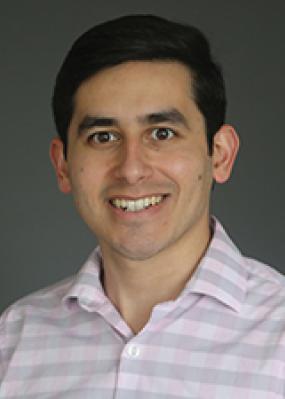Chemistry postdoc strives to improve women’s health through precision medicine

Shakila Peli Thanthri | Postdoctoral Researcher | Soper Research Group/Chemistry
Treating breast cancer effectively requires knowing precisely what type of breast cancer a patient has. Driven by a passion for women’s health, Shakila Peli Thanthri is helping equip doctors with faster, more efficient diagnostic tools to achieve this goal.
She currently serves as a postdoctoral researcher in the KU Department of Chemistry and the Center of BioModular Multi-Scale Systems for Precision Medicine (CBM²). The center is a partnership between KU’s Soper Research Group, the University of Kansas School of Medicine, University of North Carolina-Chapel Hill, Louisiana State University, and Wake Forest School of Medicine. The collaborators are manufacturing prototypes of small laboratory chips designed to analyze biological samples, enabling faster and more accurate cancer detection.
“The current trends for breast cancer diagnosis require tissue samples from cancer sites. Our proposed alternative is a minimally invasive technique using blood samples. However, since cancer cells in the blood are limited, we are developing a method to enhance detection by isolating and concentrating cancer-related biomarkers from these cells for breast cancer subtype identification.,” Peli Thanthri said. “Our approach aims to process small blood samples quickly, providing cancer subtype results in minutes, which is significantly faster than current methods that take several days to weeks.”
Peli Thanthri is involved in the device assembly and the testing of biomarker detection methods. KU researchers design the specific sensor features and send them to a CBM² partner lab for the fabrication of a master mold. After receiving the master mold from the partnering lab, the sensor features are replicated into thermoplastics via a mass production technique called injection molding. Peli Thanthri then dawns specialized protective gear and enters the clean room in the Nanofabrication Facility in the basement of Gray-Little Hall on KU’s Lawrence campus. The room is environmentally controlled to prevent contaminants and debris from affecting the prototype.
“Making the devices and bonding them — that’s what we do in-house,” Peli Thanthri explained. “We use the clean room facility frequently because everything needs to be impeccably clean. Even a tiny particle of dust can ruin the sensor which will result in a malfunctioning device. This Nanofabrication Facility is a core lab supported by the Office of Research and the Center for Molecular Analysis of Disease Pathways.”
While Peli Thanthri’s work is highly technical and focused on early-stage development, she’s motivated primarily by the potential to save lives — especially the lives of women, who are disproportionately impacted by breast cancer.
“The reason that most influenced me on doing this research is breast cancer because breast cancer is the second most common cancer among women,” she said. “I’m not just doing it for society in the abstract; it’s kind of my right, as a woman.”
Peli Thanthri’s path to KU started in Sri Lanka, where she earned her undergraduate degree from the University of Sri Jayewardenepura before pursuing a doctorate at Wayne State University. There she specialized in bioanalytical chemistry.
“In my undergrad program, I had the opportunity of becoming one of the first 30 students out of the 300 who got the highest marks for chemistry and got selected for the chemistry special program in the University of Sri Jayewardenepura. It intrigued my interest in science and research” Peli Thanthri said.
Although her current position is funded by a three-year National Institutes of Health grant with the potential for renewal, Peli Thanthri knows this work is on a longer timescale than just one grant. She is committed to advancing this research throughout her career.
“When I think as a broader picture, I'm not just keeping my research inside the lab,” she said. “We all work as a team to progress this project and I’m serving for a significant part of an innovative research journey to help people for a better and healthy future in this society, in this world. That's how I see it.”
